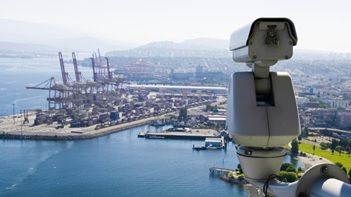India is taking proactive steps to enhance its maritime security infrastructure with the impending establishment of a Bureau of Port Security. Union Minister Sarbananda Sonowal revealed this strategic move, underscoring the government’s commitment to safeguarding the nation’s ports and coastal regions.
The proposed Bureau of Port Security aims to streamline and strengthen security measures across India’s vital ports and shipping hubs. This initiative aligns with the country’s focus on ensuring robust security frameworks amid evolving security challenges and geopolitical dynamics in the maritime domain.
By centralising port security efforts, India intends to enhance coordination among various stakeholders, including law enforcement agencies, port authorities, and maritime security personnel. This collaborative approach will enable quicker responses to security threats and incidents, bolstering the resilience of India’s maritime infrastructure.
The ministry of ports, shipping and waterways envisages the creation of a Bureau of Port Security to bolster security across all port facilities in the country, which shall function under the control of the designated authority as per the relevant provisions of the Merchant Shipping Act. The establishment of the Bureau of Port Security signifies a proactive shift towards comprehensive security preparedness. As maritime trade continues to play a pivotal role in India’s economic growth, ensuring the safety of ports and shipping routes remains a top priority. This move also reflects India’s commitment to international maritime security protocols and its role in maintaining stability in the Indian Ocean region. It is anticipated to contribute to safer navigation, secure cargo handling, and protection against potential security breaches.
The Minister underscored that the country’s maritime sector is currently poised for substantial growth, with investment opportunities identified to be more than 10 lakh crore. He stressed that this burgeoning financial prospect is more than an economic boom; it symbolises an opportunity to generate employment for over 15 lakh youths in the country, intertwining economic advancement with social empowerment. In alignment with this vision, the role of private players is being progressively augmented, with Public-Private Partnership (PPP) terminals currently handling about 50% of the cargo at major ports and efforts underway to raise their share to approximately 85% in the coming decades. This strategic move towards privatisation is expected to enhance efficiency and facilitate the scaling of operations.
The creation of the Bureau of Port Security exemplifies India’s dedication to fortifying its maritime security architecture. As the nation navigates complex security challenges, this proactive step underscores India’s commitment to safeguarding its coastal interests and maintaining trade networks.








